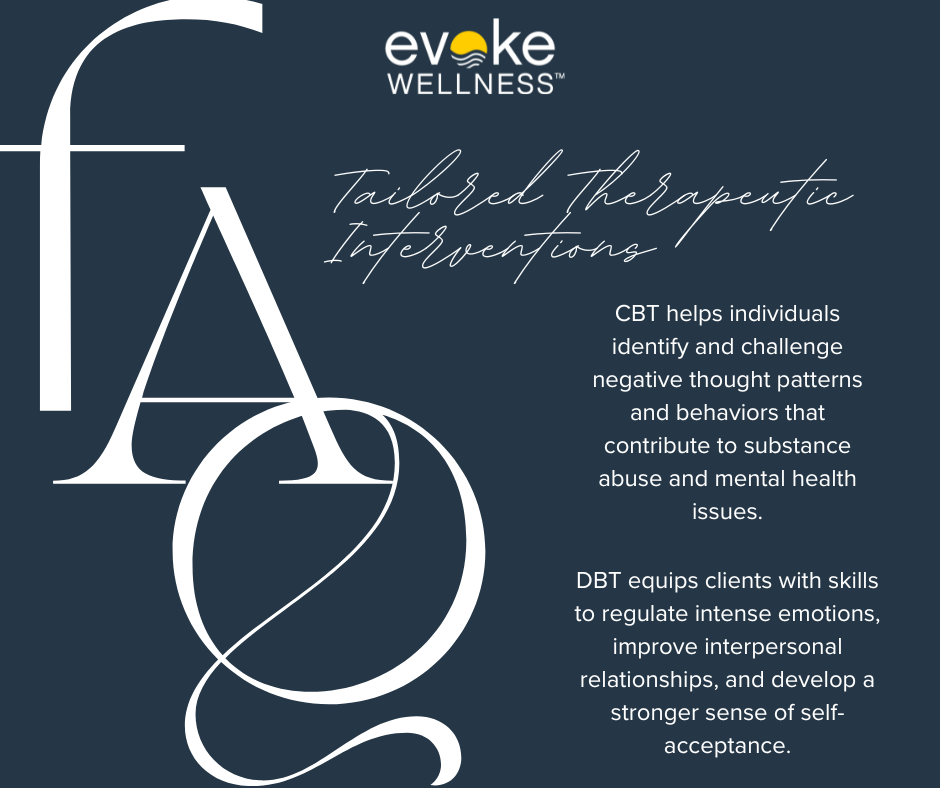Embarking on the journey of detoxification from drugs or alcohol can be a challenging process, especially when grappling with co-occurring anxiety and depression. As you begin this crucial step towards recovery, it’s essential to understand the intricate relationship between substance use disorders and mental health. Recent studies indicate that up to 50% of individuals with substance use disorders also experience mental health conditions. At Evoke Wellness at Cohasset, we recognize the importance of addressing both aspects simultaneously through dual diagnosis treatment. This comprehensive approach combines mental health therapy with drug and alcohol detox, providing you with the tools and support necessary to navigate the complex emotions and physical symptoms that may arise during this transformative period.
Together, let’s embrace the journey to recovery and the promise of a new beginning. Call us at (617) 917-3485 today or reach out online.
Understanding the Detox Process and Its Impact on Mental Health
The Physical Toll
The detox process can be physically and mentally grueling as the body rids itself of addictive substances. As explained on the Evoke Wellness at Cohasset blog, acute withdrawal symptoms like tremors, nausea, and seizures often arise within 8-72 hours of one’s last drink or dose. This phase places immense stress on the body and brain.
An Unsettled Mind
While detox tackles physical dependence, the psychological impact can be severe. Research shows that substance abuse frequently co-occurs with mental health disorders like anxiety and depression. Withdrawal abruptly halts the “self-medication” provided by drugs or alcohol, intensifying mood disturbances.
Finding Equilibrium
Despite the challenges, detox is a vital first step in restoring neurochemical balance disrupted by addiction. Medically-supervised detox programs use medications and therapy to manage withdrawal safely, stabilizing patients mentally and physically. This reset paves the way for comprehensive treatment addressing root psychological issues.
Integrated Healing
Dual diagnosis treatment is crucial for those with co-occurring substance use and mental health disorders. These integrated programs provide detox alongside evidence-based psychotherapies like CBT and DBT. This holistic approach disrupts the self-perpetuating cycle, treating both conditions simultaneously for lasting recovery.
Coping with Anxiety During Detox
The detox process can be an intensely challenging and anxiety-provoking experience, as the body works to rid itself of substances and restore chemical balance. According to Evoke Wellness at Cohasset, withdrawal symptoms like insomnia, nausea, and tremors can peak within 24-72 hours of the last drink or drug use. Anxiety and panic attacks are also common during this phase.
Embrace Mindfulness Techniques
Mindfulness practices, such as deep breathing exercises, meditation, and grounding techniques, can be powerful tools for managing anxiety during detox. These methods help individuals stay present, observe their thoughts and emotions without judgment, and cultivate a sense of calm amidst the turbulence of withdrawal.
Seek Professional Support
Attempting detox alone can be extremely dangerous and even life-threatening, especially for substances like alcohol and benzodiazepines. Seeking professional help at a dedicated treatment facility ensures medical supervision, 24/7 monitoring, and access to medications that can ease withdrawal symptoms and manage anxiety.
Counseling and therapy during detox also play a vital role in addressing the psychological aspects of addiction and developing healthy coping strategies for anxiety.
Embrace a Holistic Approach
A comprehensive, holistic approach that combines medical detox, evidence-based therapies like cognitive-behavioral therapy (CBT), and complementary practices like yoga, massage, and nutritional counseling can be highly effective in managing anxiety during the detox process. Evoke Wellness Centers offer dual diagnosis treatment programs that integrate care for both substance abuse and co-occurring mental health disorders, including anxiety.
By embracing mindfulness, seeking professional support, and adopting a holistic approach, individuals can navigate the challenges of detox with greater resilience and pave the way for a successful recovery journey.
Addressing Depression in the Detox Phase
Understanding the Psychological Impact
During detox, individuals often experience intense emotions and psychological distress as the body rids itself of substances. Depression is a common side effect, as the brain’s chemical balance is disrupted, leading to the resurfacing of repressed emotions and trauma. This vulnerable state requires comprehensive support.
Therapeutic Intervention
At Evoke Wellness, our dual diagnosis approach integrates mental health therapy alongside addiction treatment. Evidence-based therapies like Cognitive Behavioral Therapy (CBT) and Dialectical Behavior Therapy (DBT) help clients develop healthy coping mechanisms to manage depressive episodes.
Individualized counseling sessions provide a safe space to process underlying issues contributing to substance abuse and depression. Our multidisciplinary team collaborates to create personalized treatment plans addressing both conditions simultaneously.
Medication Management
In some cases, medications may be prescribed to help ease withdrawal symptoms and stabilize mood. Our medical staff closely monitors each client’s progress, adjusting treatment as needed for a comfortable, supported detox experience.
Holistic Healing Practices
Complementing our clinical approach, Evoke Wellness incorporates holistic practices like meditation, yoga, and experiential therapies to nurture overall well-being. These activities provide healthy outlets for stress relief, emotional regulation, and reconnection with one’s authentic self – vital components of sustainable recovery.
With our comprehensive care model, individuals can safely navigate the detox phase while receiving the emotional support needed to address co-occurring depression, laying the foundation for lasting sobriety.
Why Do I Feel Worse During Detox?
The Paradoxical Nature of Withdrawal
As your body rids itself of toxic substances during detox, you may experience an intensification of unpleasant physical and psychological symptoms. This paradoxical worsening of symptoms is a normal part of the detox process and results from your brain’s adjustment to functioning without the substances it has grown dependent on.
In essence, your brain has become accustomed to the presence of drugs or alcohol, and their sudden absence causes an imbalance in brain chemistry. As your body works to regain equilibrium, you may experience a range of withdrawal effects like nausea, anxiety, insomnia, mood swings, and intense cravings.
A Transformative Journey
While the heightened discomfort can be daunting, it’s crucial to reframe this phase as a transformative journey rather than just a challenge. The emotional upheavals you experience are temporary, marking your transition toward a healthier, substance-free life.
During this time, embracing support systems, practicing self-care, and reminding yourself of your commitment to recovery can help you navigate the ups and downs more effectively. Seeking professional help through a medically supervised detox program provides a safe, controlled environment with round-the-clock care and medication to alleviate withdrawal symptoms.
Persevering Through the Storm
It’s important to remember that the worst of the withdrawal symptoms typically subside within the first week or two of detox. However, some individuals may experience post-acute withdrawal symptoms (PAWS) like mood disturbances, sleep issues, and cravings for months after the initial detox phase.
Factors like the duration and severity of substance abuse, co-occurring mental health conditions like depression or PTSD, and previous withdrawal episodes can influence the intensity and longevity of these symptoms.
By persevering through this storm with professional support, engaging in therapy, and developing healthy coping mechanisms, you can steadily regain your mental and emotional well-being, ultimately emerging from the detox journey stronger and more resilient.
Dual Diagnosis Treatment: Addressing Anxiety and Depression Together
Effectively treating co-occurring anxiety and depression is crucial for achieving lasting recovery. According to the National Institute on Drug Abuse, around 7.9 million adults in the U.S. experienced a co-occurring mental health and substance use disorder in 2019. Integrated dual diagnosis treatment is vital to address the root causes driving both conditions.
Comprehensive Approach
A comprehensive, multifaceted approach forms the cornerstone of effective dual diagnosis care. This typically involves:
- Thorough psychiatric evaluation to accurately diagnose co-occurring disorders.
- Evidence-based therapies like cognitive-behavioral therapy (CBT) and dialectical behavior therapy (DBT) to reshape thought patterns and develop coping skills.
- Addiction treatment, including medically supervised detox and ongoing support.
- Holistic therapies promote overall well-being through mindfulness, exercise, and creative outlets.
Personalized Treatment Plans
At Evoke Wellness, individualized treatment plans are crafted to meet each client’s unique needs. The process often begins with medically supervised detox to safely manage withdrawal symptoms. This is followed by an intensive inpatient or residential program providing 24/7 support and structure.
Residential care creates a safe, therapeutic environment allowing an immersive focus on physical, emotional, and psychological healing. Personalized plans combine evidence-based therapies, medication management, counseling, and other interventions to simultaneously target addiction and mental health issues.
Continuum of Care
Aftercare services like outpatient treatment and sober living arrangements are crucial for maintaining recovery momentum. Evoke Wellness offers a full continuum of care, guiding clients through each stage with compassion and expertise.
By addressing co-occurring anxiety, depression, and substance abuse holistically, individuals can build a strong foundation for lasting wellness and embrace a healthier future. Evoke’s specialized dual diagnosis programs utilize this integrative approach to improve overall well-being and increase the chances of sustained recovery.
The Role of Mental Health Therapy in Detox and Recovery
A Holistic Approach to Healing
The path to lasting recovery from substance abuse often requires a holistic approach that addresses both the physical and mental aspects of addiction. Effective treatment programs recognize the intricate relationship between mental health disorders and substance use, employing evidence-based therapies like cognitive-behavioral therapy (CBT) and dialectical behavior therapy (DBT) to promote overall well-being.
Mental health therapy plays a pivotal role in the detox and recovery process, as it helps individuals develop healthy coping strategies, improve emotional regulation, and address underlying issues contributing to their addiction and co-occurring mental health conditions.
Tailored Therapeutic Interventions
At Evoke Wellness at Cohasset, personalized dual diagnosis treatment plans are carefully crafted to meet each client’s unique needs. Through individual and group therapy sessions, clients have the opportunity to explore the root causes of their struggles, develop self-awareness, and learn new ways of managing their emotions and behaviors.
Comprehensive Continuum of Care
The role of mental health therapy extends beyond the initial detox phase. Evoke Wellness Centers offer a comprehensive continuum of care, including residential treatment, partial hospitalization programs, intensive outpatient programs, and ongoing outpatient services. This approach ensures that individuals receive the support they need throughout their recovery journey, reducing the risk of relapse and promoting lasting stability.
Through group counseling, clients can practice newly learned skills, develop a sense of belonging, and benefit from the shared experiences and support of their peers. These supportive environments foster personal growth, self-reflection, and the formation of healthy relationships, further reinforcing the gains made through individual therapy.
Addressing the Mind-Body Connection
Substance abuse and mental health disorders often have a bidirectional relationship, with each condition exacerbating the other. By addressing both aspects simultaneously through integrated treatment approaches like those offered at Evoke Wellness at Cohasset, individuals can break this vicious cycle and achieve lasting recovery.
Mental health therapy plays a crucial role in this process, helping individuals develop a deeper understanding of the mind-body connection and learn strategies to manage the emotional and psychological factors that contribute to addiction and co-occurring mental health disorders.
Conclusion
As you navigate the challenges of anxiety and depression during detox, remember that you are not alone. Recent studies show that up to 50% of individuals with substance use disorders also experience co-occurring mental health conditions. By utilizing the strategies outlined above and seeking professional support, you can effectively manage these symptoms and pave the way for long-term recovery.
With the right tools and support, you can overcome these obstacles and emerge stronger on your journey to wellness. Remember, seeking help is a sign of strength, not weakness. Your path to recovery starts here.
Begin Your Journey with Evoke Wellness at Cohasset
If you or a loved one is considering treatment, Evoke Wellness at Cohasset invites you to contact us. Our compassionate team is ready to answer your questions, discuss your needs, and help you take the first steps toward recovery. In Cohasset, you’ll find more than just a treatment program – you’ll discover a community dedicated to your wellness and success. Together, let’s embrace the journey to recovery and the promise of a new beginning. Call us at (617) 917-3485 today or reach out online.





